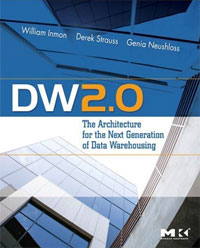AI/ML and Data Management Seminar
Class Title:
Artificial Intelligence, Machine Learning and Data Management
Description:
This class provides insight into the key considerations for the mutual success of Artificial Intelligence, Machine Learning and Data Management.
What you will learn
- The characteristics of AI/ML, together with their broader data management eco-system dependencies
- The Critical Success Factors for deploying AI/ML in your organization
- How to realize sustained business value from your AI/ML investments through a comprehensive, integrated AI & Data Strategy
- How to use Organizational Change Management and the G7S Framework to embed AI/ML into the culture of the organization (for business and technology teams alike)
Main Topics
HALF DAY ONE
- Building an integrated AI & Data Capability – What? Why? And Why Now?
- Data Ethics, Privacy and Security
- Designing a Robust Long-term Architecture
HALF DAY TWO
- The G7S Playbook – Using Accelerators to Launch your AI & Data Program
- Developing the Right Mix of Technological Expertise and Business Knowledge
- Managing the Organizational Change, Measuring Success and Ensuring Sustainable Business Value
WHO SHOULD ATTEND
This course is intended for any role involved in the planning and implementation of an integrated Artificial Intelligence & Data Management Strategy including:
Executive Stakeholders – AI/ML & Data
Data & Analytics Leaders
Data Scientists
Business Technology Partners
Business Analysts
Enterprise Architects
AI/ML & Data Architects
Outline
Today, many organizations are dabbling in Data Science, Machine Learning and Artificial Intelligence, without a clear understanding of the underlying dependencies on a robust Data Strategy.
On the flipside of the coin, many of those same organizations are undergoing data-driven transformation and change management efforts to digitize their processes, without a clear vision of how AI/ML and advanced Data Science fit into the picture.
So, how do you develop a data-driven transformation culture, and become a change leader, enhancing the competitive advantage of your organization, while at the same time making strategic use of Data Science, Machine Learning and Artificial Intelligence?
Leadership needs to refocus on creating an integrated AI & Data Strategy. This seminar addresses the key issues involved in achieving just that.
Module descriptions:
- Introduction to Advanced Data Science, Machine Learning and Artificial Intelligence.
Within the context of a framework for human-AI collaboration, we describe the latest in data science and modeling methodologies, and their ability to formulate and solve problems. Particular attention is paid to practical, efficient, and statistically sound techniques (including the latest tools for mining frequent patterns, and unsupervised machine learning techniques of clustering, etc.), and estimates of their utility. We’ll also describe best practices for planning, building, and deploying such collaborative systems. - Building an Integrated AI & Data Capability – What? Why? And Why Now?
“AI and Data” should be recognized as a key, integrated enterprise capability, which should support and enable all the other enterprise capabilities. An Enterprise Capability Map is a good starting point, using overlays to highlight those areas of the business that need the most urgent attention, and enabling the achievement of the highest-ranking business goals. This Enterprise Capability Map in turn should drive the AI & Data Capability Map. - Ensuring Sustainable Business Value
Beware of putting all efforts into short-term wins and neglecting the longer-term vision. It is imperative to lay the foundation for the ultimate vision, and to develop all the requisite infrastructure. - Developing your AI & Data Strategy
The Strategy should address several aspects, including:- Accessible, accurate and actionable data
- A Data Architecture that is flexible and scalable
- Better governance and controls around the data to ensure continuous improvement of enterprise data resources
- Synthetic data for speed, security and scale
- Combining people and technology to provide optimal customer service and value
- Using AI to develop more relevant products, services, and experiences
- Reconfiguring the workforce to support an innovative AI & Data-driven culture
- The Gavroshe 7 Streams Playbook – Using Accelerators to Launch your AI & Data Program:
- Data Governance – establishing the Data Governance Council, Data Policy and the Data Stewardship process
- Data Architecture – establishing a Data Reference Architecture and the Data Modeling process
- Data Asset Development – iteratively plan, design, develop and deliver enterprise-class Data Assets
- Data Quality – profile, map and cleanse Critical Data Elements
Data Context – develop a Business Glossary and Data Lineage - Data Analytics – including Advanced Analytics, Data Science, Machine Learning and Artificial Intelligence
- Infrastructure – manage the Information Life Cycle of Corporate Data Assets and manage AI & Data Platforms
- Examples are provided of Play Cards and Templates, embedded in the Playbook, which can be used to accelerate the creation of the relevant AI & Data Capabilities.
- Data Ethics, Privacy & Security
These are key topics for today’s AI & Data Executive, and they need to be addressed in collaboration with the Chief Privacy Officer and the Chief Information Security Officer.
We will briefly discuss:- Ownership – Individuals own their own data.
- Transaction Transparency – If an individual’s personal data is used, they should have transparent access to the algorithm design used to generate aggregate data sets
- Consent – If an individual or legal entity would like to use personal data, one needs informed and explicitly expressed consent of what personal data moves to whom, when, and for what purpose from the owner of the data.
- Privacy – If data transactions occur all reasonable effort needs to be made to preserve privacy.
- Currency – Individuals should be aware of financial transactions resulting from the use of their personal data and the scale of these transactions.
Openness – Aggregate data sets should be freely available - Algorithm Transparency – Inclusiveness/exclusiveness of certain sectors of the population based on use of Algorithms
- Managing the Organizational Change, Measuring Success, and Ensuring Sustained Business Value
Establishing a new AI & Data Team and introducing an organization-wide AI & Data Initiative requires a well-thought-out OCM strategy. Most OCM models set forth at least four stages of change; various labels have been given to each of these stages, but the essence of each stage is described below:- AWARENESS – “I hear that a change is coming, and excitement is in the air”
- UNDERSTANDING – “I am learning about how the change will affect me”
- ACCEPTANCE – “I can see the need for the change, and I am buying into it”
- OWNERSHIP – “I am part of the change, and I am jointly responsible for weaving it into the fabric of the organization going forward”
It is imperative to adopt a formalized approach to OCM, and we recommend using the models of John Kotter and Patrick Lencioni to map out a comprehensive change journey for the organization.
AI & Data Initiatives, especially during their start-up years, involve significant effort to address the root causes of deficiencies in data accuracy, accessibility and actionability. There is a high risk that these efforts, over time, become perceived as non-value-add by the stakeholders. Successful leadership of such an initiative requires a constant radar scan for opportunities to deliver incremental business value (ideally every quarter). A thorough communications plan needs to be built, emphasizing incremental business value delivery at regular intervals.


